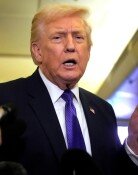Pro-NK human rights groups reeling from cut in subsidies
Pro-NK human rights groups reeling from cut in subsidies
Posted June. 13, 2012 00:54,
Civic groups working to improve human rights in North Korea are having problems implementing projects this year after failing to get subsidies for non-profit organizations from the Seoul city government.
A student coalition for North Korean human rights received 15 million won (12,800 U.S. dollars) from the overall budget of 25 million (21,400 dollars) for the Academy of Collegian Experts on North Korea from the city last year. The coalition hosted two lectures on the reality in North Korea to college students in South Korea in the first and second half of last year.
The lectures were on the impact of civilian revolutions in the Middle East on the third-generation power succession of the ruling Kim Il Sung family in the North, an account of 10 years spent at a detention colony dubbed Camp 14, and a South Korean woman and her two daughters originally from Tongyeong who were detained at a prison camp in the North.
Because of no category of subsidies for its program, the coalition changed the category of its theme to cultural education for supporting the settlement (in the South) of North Korean defectors this year, but still failed to acquire funds. The organization had no choice but to scale down the academy of North Korea experts conducted in April and May.
The North Korean Defectors Group, which received the highest evaluation grade of outstanding by offering foreign language instruction to teen defectors, also failed to receive the subsidy of 15 million won (12,800 dollars), an amount it had received from the city last year, and thus had to cancel the program this year.
Open Radio for North Korea, whose program enabled ordinary citizens to participate in the production of shows targeting the North, will fund the program with its own funds but nixed plans to expand.
On the claim that organizations gave up because of no category for them to apply to, the Seoul city government said, Projects to assist North Korean defectors and those for national security education fell under the free suggestion category.
The city thus claimed that the free suggestion category was widely open to anyone, citing that 96 of the 138 projects it supports were selected under this category.
Civic groups immediately protested the city`s claim, however. Lee Hae-yeong, chief secretary for the defectors group, said, The Seoul Metropolitan Governments explanations disregard the characteristic of the public contest-based subsidy program.
This is merely an act of rhetoric to say we could`ve applied to the free suggestion category to fund our program, because if one applies to a category that deviates from the designated area, the organization stands a high chance of failure due to incompatibility with the purported theme.
Jeon Geun-bae, planning chief at Open Radio for North Korea, said, We considered dropping our bid because there was no category for unification and national security, but we went ahead and applied, only to be rejected in the end, adding, Since program areas that had been available for years disappeared this year, we thought they made this change to not provide subsidies.
Many critics blasted the city government for failing to uphold the purpose of subsidy assistance for non-profit organizations. The program is designed to help organizations having difficulties implementing programs due to weak financial conditions.
Yet the city government turned a blind eye to them, and only provided new subsidies to civic groups closely related with Seoul Mayor Park Won-soon.
Yang Seong-min, director-general of the Korea Coalition for Inter-Korean Youth Exchange and Peace, said, We applied for a subsidy by devising a program that was more systematic than last years, but failed to acquire assistance, adding, The subsidy program was created to support small organizations like ours, but I regret that the citys budget is used to support organizations such as the Hope Institute, which can implement large-scale projects through various channels due to a high level of awareness among citizens.
coolup@donga.com kaki@donga.com



![17년 망명 끝에, 부모 원수 내쫓고 집권[지금, 이 사람]](https://dimg.donga.com/c/138/175/90/1/wps/NEWS/IMAGE/2026/02/18/133376197.3.jpg)



